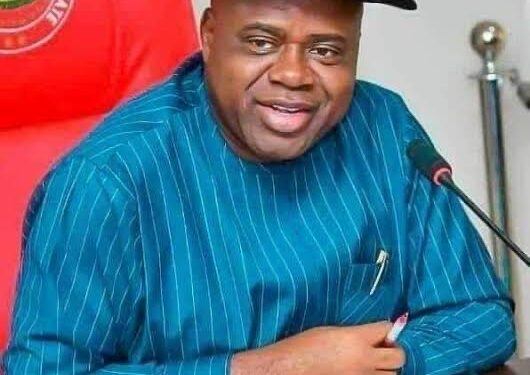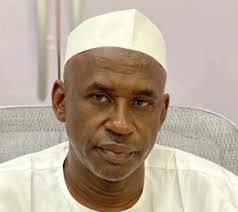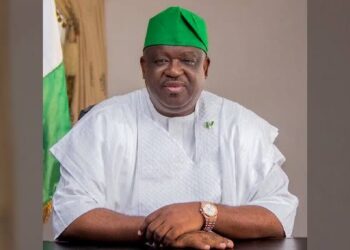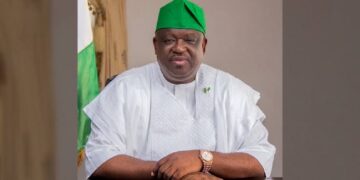The Governor of Bayelsa State, Douye Diri, has expressed concerns regarding the nature of federalism as it currently operates in Nigeria.
He has strongly criticized the existing framework, asserting that the present arrangement, where the power to create local government areas resides solely with the federal government, is fundamentally flawed and represents a serious deviation from the principles of true federalism.
During a lecture titled “Rethinking Our Future: The Need For True Federalism and Economic Renaissance,” delivered at the 64th Founders’ Day Lecture of the University of Nigeria located in Nsukka, Enugu State, Diri articulated his views on the urgent need for a reassessment of Nigeria’s developmental trajectory.
He emphasized that the country is currently headed down an incorrect path and it is imperative to recalibrate and redirect its course toward a more equitable and just system of governance.
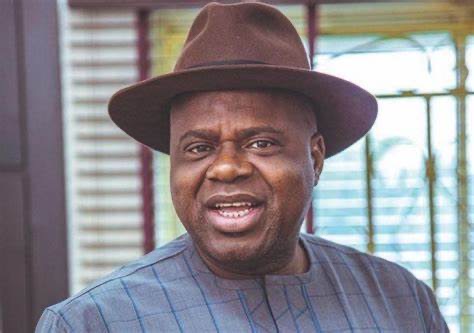
Governor Diri made a compelling case that the ability to create and legislate on local government areas should be constitutionally granted to individual states, a move he believes is essential for establishing a genuinely federal structure in Nigeria.
He reaffirmed his unwavering commitment to the unity of Nigeria, which he posits can only be sustained through principles of equity, justice, and fairness that must underpin the nation’s governance.
The subject of federalism, as described by Governor Diri, is not merely an academic or theoretical discussion; it is a deeply sensitive topic that directly impacts the corporate existence of Nigeria.
He pointed out that the term “true federalism” has become a prevalent phrase that echoes throughout the socio-political discourse in Nigeria.
This widespread recognition, according to him, highlights the defects in the current governance structure that have prompted ongoing social and political agitation across various regions.
Diri argued that the existing governance model is ill-equipped to fulfill the aspirations of the vast majority of Nigerians, who seek a future characterized by progress, stability, and prosperity.
He expressed skepticism about the current form of federalism, suggesting that it primarily serves the interests of the colonial powers rather than reflecting the ideal of a federation where states come together voluntarily to form a cohesive nation.
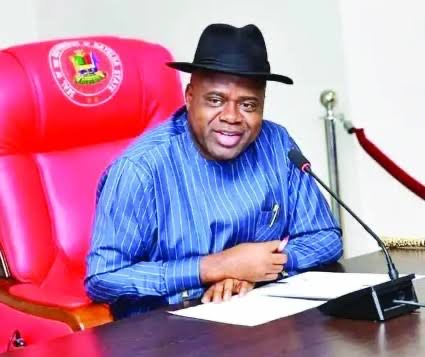
In his remarks, he noted, “We’re all aware of the ongoing conversation around the issue of autonomy of local governments. My concern over this sensitive subject is beyond the question of autonomy and more about the rationale for their creation.
“The current system, which allocates funds based on the number of local governments, puts some states, especially Bayelsa with just eight, at a disadvantage.
“This disparity arises because states with more local governments receive a larger chunk of resources, regardless of their specific requirements or financial strength.”
He further elaborated, “Since the Constitution exclusively recognizes states and the federal government as federating units, the federal government’s creation of local governments constitutes an aberration, undermining the principles of federalism and state autonomy.
“The Constitution’s clear delineation of federal and state powers renders the federal government’s creation of local governments incongruous, as local governance falls within the purview of state authority.
“My take to addressing this issue is enforcing states’ autonomy to create local government areas tailored to their unique needs and financial capacity to do so.”
Governor Diri’s remarks underscore a pressing need for a transformative approach to federalism in Nigeria, one that recognizes the distinct needs of states and empowers them to govern themselves effectively, thus ensuring a more balanced and just allocation of resources and governance authority.
This, he believes, is essential for building a Nigeria that truly reflects the aspirations of its diverse population and fosters a future marked by equity and opportunity for all.


